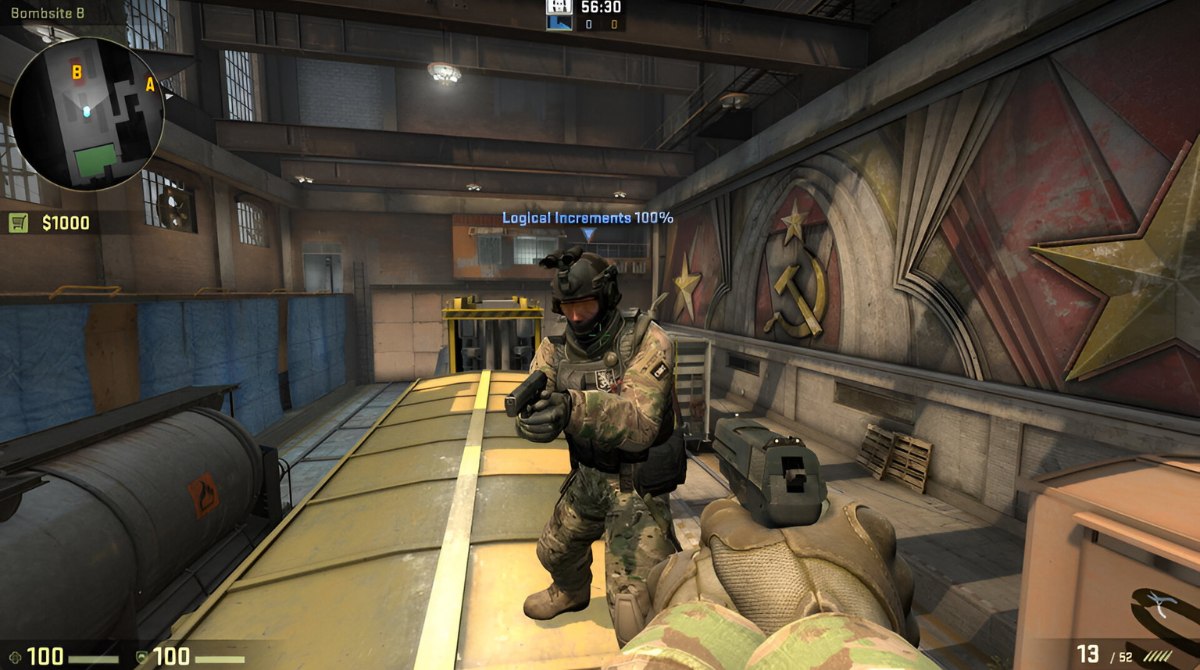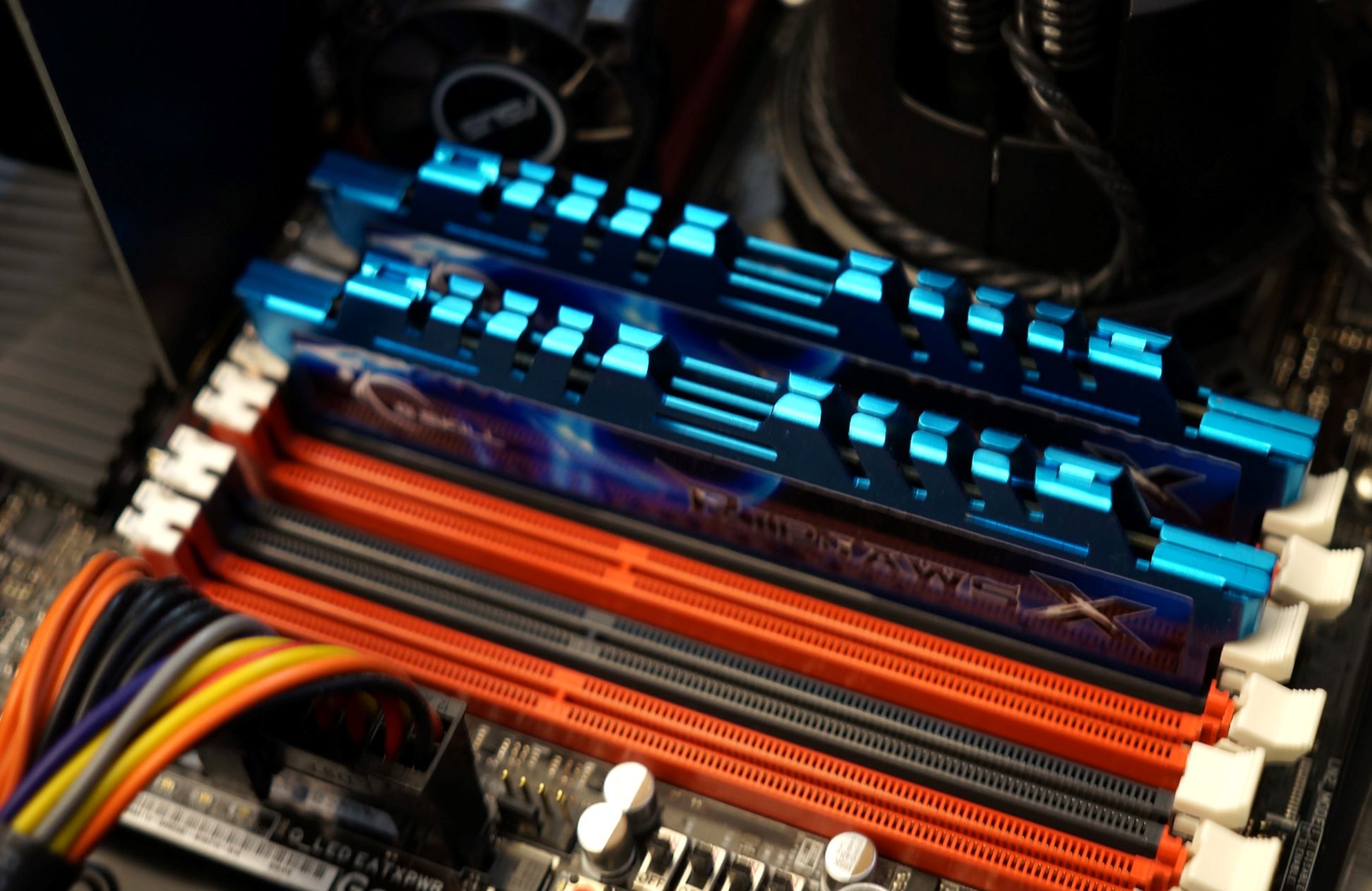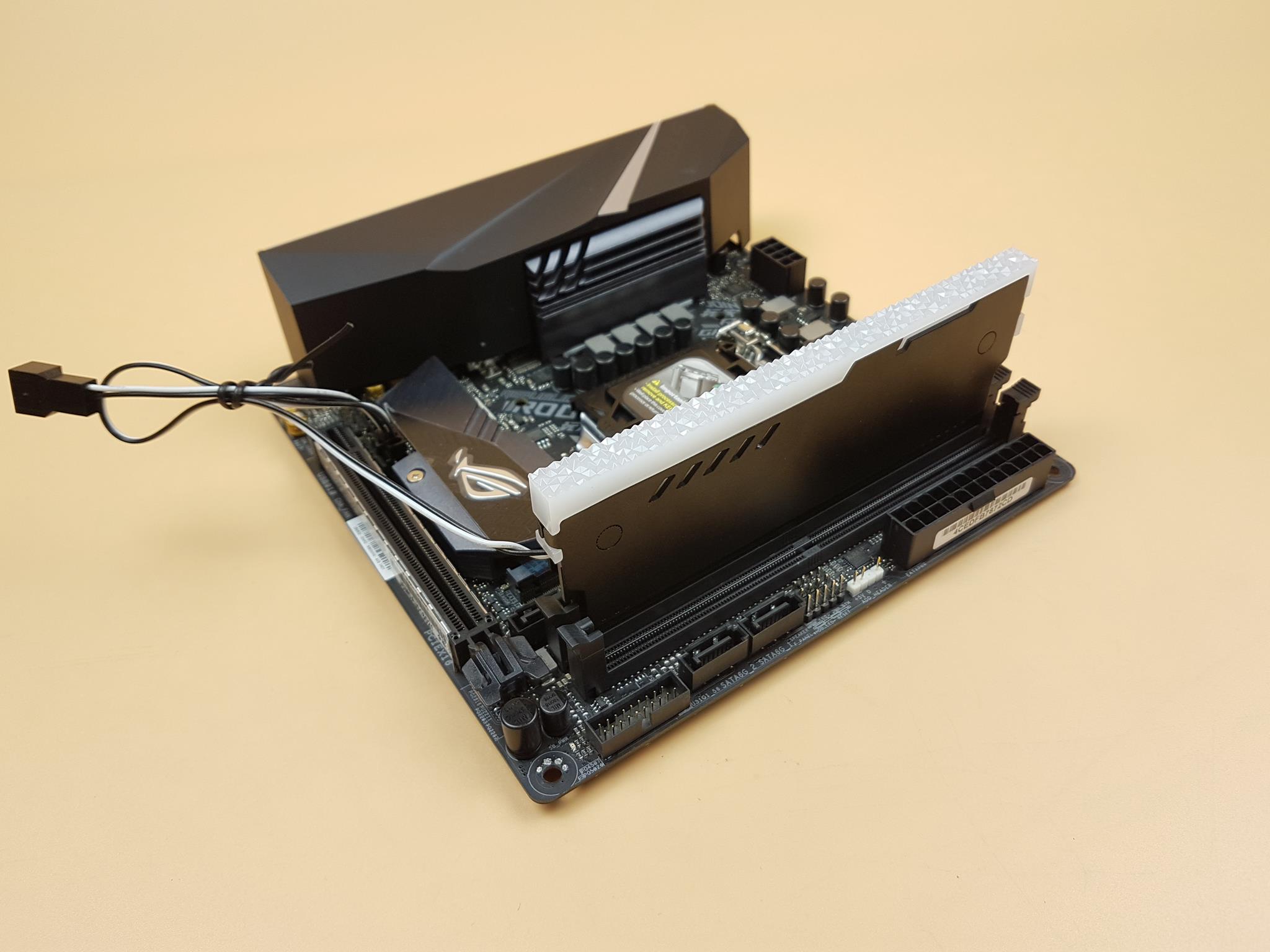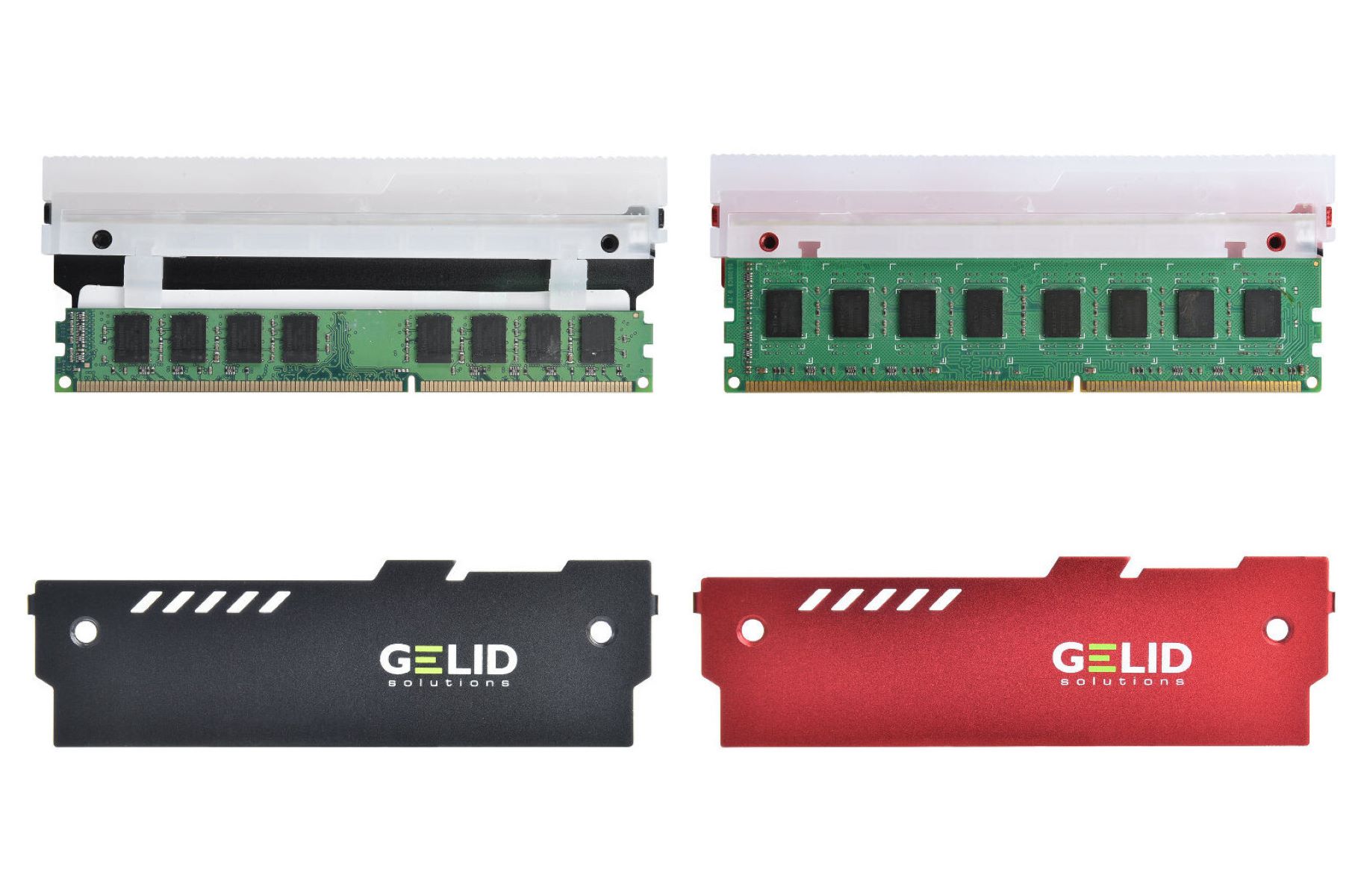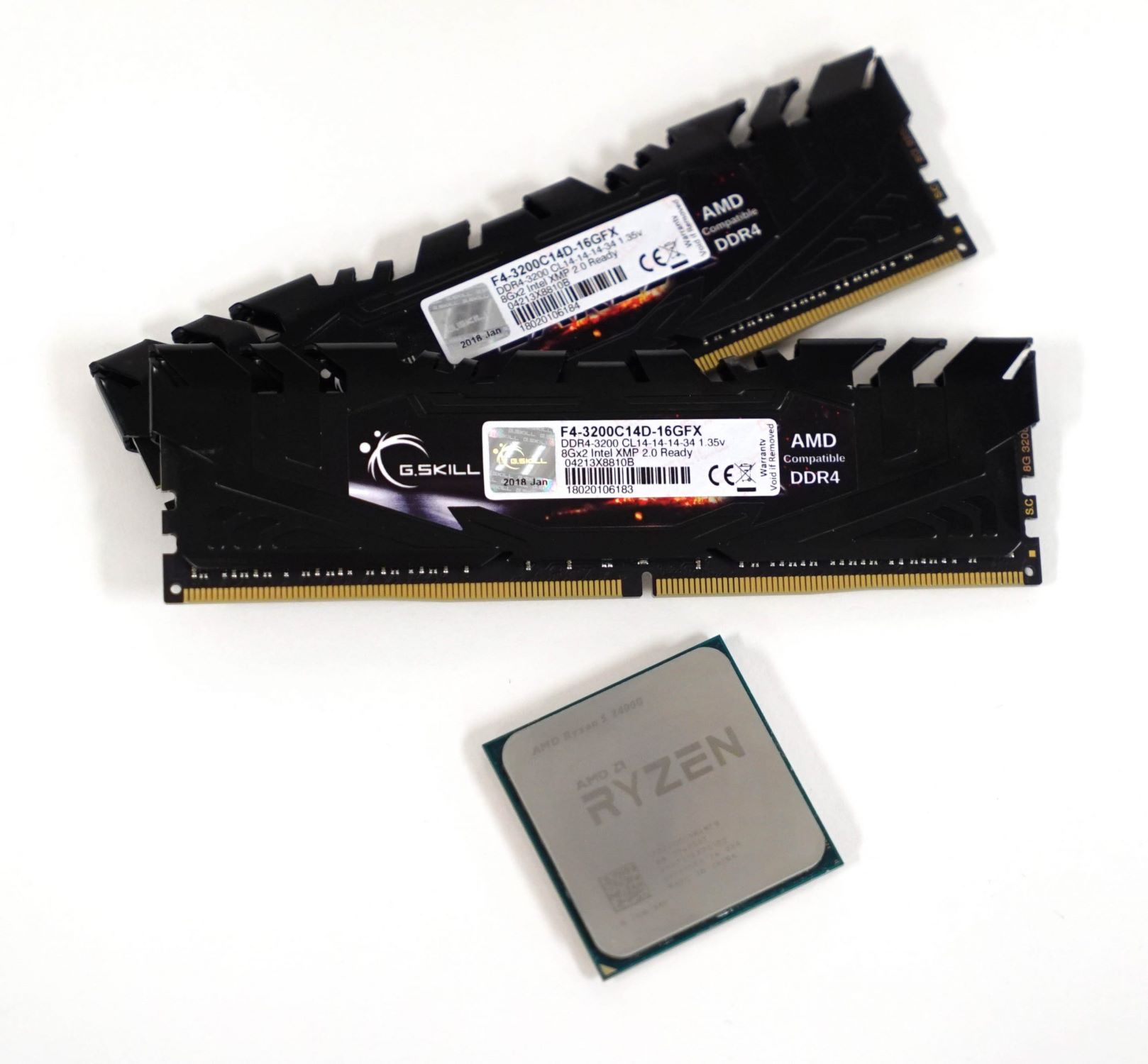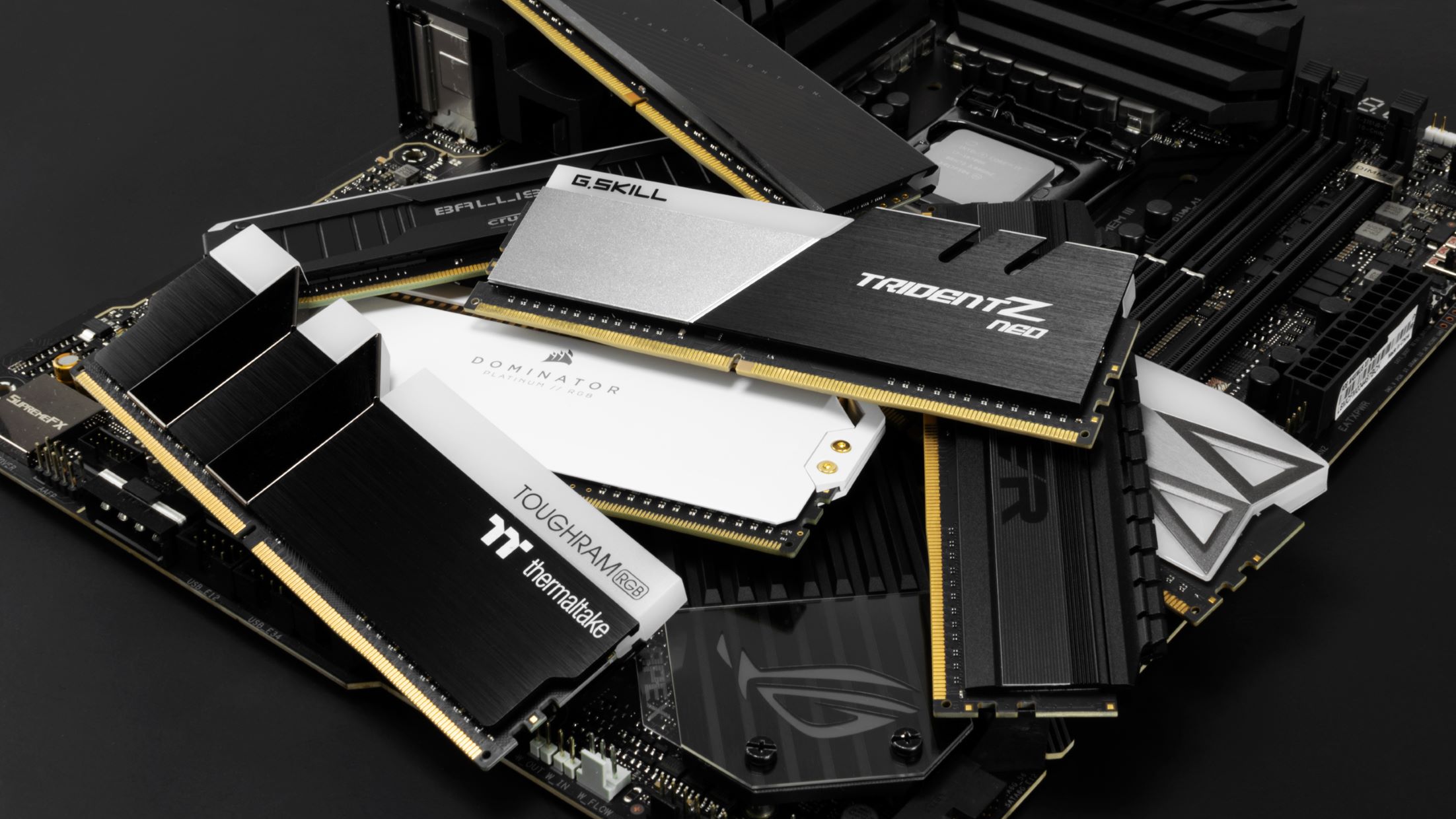Introduction
As a gamer, you’re probably well aware of the importance of having a high-performance gaming setup. From the graphics card to the processor, every component plays a crucial role in delivering an immersive gaming experience. However, there’s one element that often goes overlooked: RAM, or Random Access Memory. RAM is a vital component that can greatly impact your gaming performance and overall gameplay.
In simple terms, RAM is the temporary storage space that your computer uses to store data that is actively being used by programs and processes. Unlike permanent storage devices like hard drives or SSDs, RAM provides much faster access to data and plays a crucial role in determining the speed and efficiency of your gaming system. Without sufficient RAM, your gaming experience may suffer from slow loading times, stuttering frame rates, and overall sluggishness.
In this article, we will delve into how RAM affects gaming performance, explore the benefits it brings to your gaming experience, and discuss how much RAM you need for optimal gaming performance. We will also provide tips on upgrading your RAM to enhance your gaming setup.
What is RAM?
RAM, or Random Access Memory, is a crucial component of your computer that serves as a temporary storage space for data that your computer needs to access quickly. It is different from permanent storage devices like hard drives or solid-state drives (SSDs) because it provides almost instantaneous access to data. When you open an application or run a program, it is loaded into RAM, allowing the CPU to quickly access the necessary data and execute tasks efficiently.
RAM is built using integrated circuits and is volatile, which means it doesn’t retain information when the power is turned off. This is why it is often referred to as “temporary” or “volatile” memory. When you shut down your computer, any data stored in RAM is lost. However, when you turn on your computer again, the operating system and other frequently used software are loaded into RAM to ensure quick access and smooth operation.
The size of your RAM determines how much data can be stored and accessed at once. It is measured in gigabytes (GB) and typically ranges from 4GB to 64GB or more in modern systems. The more RAM you have, the more data your computer can store, which can lead to faster performance and smoother multitasking capabilities.
It’s important to note that RAM is distinct from storage devices like hard drives or SSDs, which provide long-term storage for files and programs even when the computer is turned off. While storage capacity is important, it shouldn’t be confused with RAM when considering gaming performance. RAM primarily affects the speed and efficiency of accessing and executing data, while storage devices primarily affect the capacity to hold and retrieve data over the long term.
In the next sections, we will explore how RAM specifically impacts gaming performance and what benefits it brings to your gaming experience.
How Does RAM Affect Gaming Performance?
RAM plays a crucial role in determining the gaming performance of your computer. It directly affects several aspects of your gaming experience, including loading times, frame rates, and overall smoothness. Here’s how RAM affects gaming performance:
Faster Loading Times: When you launch a game, the necessary data is loaded into RAM to ensure quick access by the CPU. Having ample RAM allows for faster loading times since more data can be stored and accessed efficiently. This means that you can jump into your favorite game without having to endure long loading screens, giving you a more seamless and immersive gaming experience.
Smoother Gameplay: During gameplay, your computer constantly retrieves and processes data from RAM, such as game assets, textures, and audio files. If your RAM is insufficient, your system will struggle to keep up with the demands of the game, resulting in stuttering frame rates, latency issues, and overall choppy gameplay. Adequate RAM ensures that your computer can store and access these necessary data quickly, providing smoother gameplay with consistent frame rates and reduced input lag.
Multitasking and Game Performance: Many gamers like to multitask while gaming, whether it’s running a voice chat program, recording gameplay footage, or streaming to an audience. RAM plays a vital role in multitasking while gaming, as it allows your computer to allocate memory to different processes simultaneously. With more RAM, you can run resource-intensive applications alongside your game without significant performance degradation. This means you can seamlessly switch between tasks without experiencing lag or slowdowns in your game.
It’s important to note that while RAM is a critical component for gaming performance, it works in conjunction with other hardware components, such as the CPU and graphics card. These components collaborate to deliver a smooth gaming experience. Therefore, it’s important to have a balanced system where all the components complement each other in terms of performance.
In the next sections, we will explore how much RAM you need for optimal gaming performance and provide tips on upgrading your RAM to enhance your gaming setup.
Faster Loading Times
Faster loading times are a key benefit of having sufficient RAM in your gaming system. When you launch a game, various assets and data, such as textures, models, and sounds, need to be loaded into RAM so that they can be quickly accessed by the CPU during gameplay.
If you have limited RAM, your computer may struggle to load all the necessary data at once, resulting in longer loading times. This can be frustrating, especially if you’re eager to dive into the action. Insufficient RAM may also lead to frequent loading pauses during gameplay, as your system has to constantly retrieve and load data from slower storage devices like hard drives.
Having ample RAM allows your computer to store a larger amount of game data, reducing the need for frequent data retrieval from slower storage devices. This leads to significantly faster loading times, allowing you to get into the game more quickly and minimizing any disruptions to your gaming experience.
Additionally, faster loading times not only benefit the initial game launch but also apply to subsequent loading screens within the game. Whether it’s entering new levels, transitioning to different areas, or loading saved games, having sufficient RAM ensures that these operations are completed swiftly, ensuring a smooth and uninterrupted gaming experience.
Moreover, faster loading times can also be advantageous in competitive online multiplayer games. By reducing the time spent on loading screens, you can get back into the game faster and maintain a competitive edge over your opponents.
It’s worth mentioning that the improvement in loading times may also depend on other factors, such as the speed of your storage device (e.g., an SSD will generally provide faster loading times compared to a traditional hard drive). However, having sufficient RAM is a crucial component in optimizing loading times as it allows for efficient access and retrieval of game data.
In the next section, we will discuss how RAM affects overall gameplay and ensures smoother performance in gaming.
Smoother Gameplay
Smoother gameplay is another significant benefit of having adequate RAM in your gaming system. RAM directly impacts the performance and responsiveness of your gaming experience, ensuring that games run smoothly and without interruptions.
During gameplay, your computer constantly retrieves and processes data from RAM, such as game assets, textures, and audio files. With limited RAM, your system may struggle to store and access these data quickly, resulting in noticeable performance issues.
Insufficient RAM can lead to stuttering frame rates, where the game appears to freeze or lag for brief moments. This hampers the fluidity of gameplay, making it difficult to react swiftly and hampering your overall gaming experience.
In contrast, having ample RAM allows your computer to store a larger amount of game data, reducing the need for constant retrieval from slower storage devices. This ensures smoother gameplay by providing a steady and consistent stream of data to the CPU and graphics card, resulting in more stable frame rates and reduced input lag.
In addition to improved frame rates, having sufficient RAM also helps prevent crashes and performance issues when games demand a lot of system resources. Games with high graphics and complex details, such as open-world environments, physics simulations, and realistic particle effects, require significant memory resources to run smoothly. Insufficient RAM can cause these resource-intensive games to crash, freeze, or suffer from severe performance drops.
With enough RAM, your computer can effortlessly handle the demands of these games, allowing you to enjoy them at their optimal settings and without any issues. This results in a more immersive and enjoyable gaming experience, as you can fully appreciate the game’s visual fidelity, smooth character movements, and realistic physics.
In summary, having sufficient RAM is crucial for ensuring smoother gameplay. It eliminates lag, stuttering, and input delays, allowing you to fully immerse yourself in the gaming world and enjoy a seamless experience from start to finish.
In the next section, we will explore how multitasking and game performance are affected by RAM, and discuss the amount of RAM you need for optimal gaming performance.
Multitasking and Game Performance
Many gamers like to multitask while gaming, whether it’s running a voice chat program, streaming gameplay to an audience, or having multiple applications open in the background. RAM plays a vital role in multitasking, as it allows your computer to allocate memory to different processes simultaneously.
Insufficient RAM can hinder multitasking capabilities, causing performance degradation in both your game and other running applications. When you have limited RAM, your computer may struggle to allocate enough memory to each process, leading to increased loading times, reduced frame rates, and overall system slowdowns.
Having ample RAM is especially important if you stream your gameplay or record videos while gaming. Streaming and video recording software require significant system resources to capture and process both gameplay footage and audio in real-time. With limited RAM, these resource-intensive applications may cause your game to lag, resulting in a subpar streaming experience or poor video quality.
With sufficient RAM, your computer can effortlessly handle the demands of multitasking while gaming. You can run resource-intensive applications alongside your game without significant performance degradation. This means that you can seamlessly switch between tasks without experiencing lag or slowdowns in your game.
Moreover, having enough RAM allows you to keep other applications open in the background without adversely affecting your gaming performance. You can have a web browser, voice chat program, and other utility applications running simultaneously, enabling you to communicate with teammates, browse the internet, and access helpful gaming resources without compromising your gameplay.
Furthermore, adequate RAM can also enhance the performance of other software that is commonly used alongside gaming, such as video editing applications, graphic design tools, or virtual machines. These applications often require significant memory resources to function optimally. With enough RAM, you can run these programs smoothly alongside your game, enabling seamless transitions between gaming and other creative or productivity tasks.
In summary, having sufficient RAM is crucial for multitasking while gaming. It ensures smooth performance in both your game and other resource-intensive applications, allowing you to have a seamless and efficient gaming experience while simultaneously managing other tasks.
In the next section, we will discuss how much RAM you need for optimal gaming performance and provide tips on upgrading your RAM to enhance your gaming setup.
How Much RAM Do You Need for Gaming?
The amount of RAM you need for optimal gaming performance depends on several factors, including the games you play, the settings you prefer, and the other applications you run concurrently. While there is no “one size fits all” answer, there are some general guidelines to consider:
Minimum Requirement: Most modern games recommend a minimum of 8GB of RAM. This amount of memory is typically sufficient for running less demanding games and can handle basic multitasking alongside gaming. However, keep in mind that the minimum requirement may not provide the best experience for more graphics-intensive games with high-resolution textures and complex environments.
Recommended Requirement: To ensure a smoother gaming experience with higher settings and improve multitasking capabilities, it is advisable to have at least 16GB of RAM. This provides ample memory for most modern games and allows for better performance when running other applications simultaneously, such as voice chat programs, streaming software, or web browsers.
High-End Requirement: If you are a hardcore gamer or frequently engage in resource-intensive tasks like video editing or 3D modeling, having 32GB or more of RAM can provide an extra boost to your gaming experience. This amount of memory allows for smoother multitasking, faster loading times, and improved performance in demanding games or applications.
It’s important to consider that other hardware components, such as the CPU and graphics card, also play a significant role in gaming performance. If you have a powerful CPU and graphics card, you may be able to compensate for lower RAM amounts to some extent. However, having sufficient RAM is still essential for smooth gameplay and system stability.
Additionally, it’s worth noting that future game releases may place greater demands on system resources. As technology advances and game developers continue to push the boundaries of graphics and features, it’s reasonable to expect that higher amounts of RAM will become more beneficial for optimal gaming performance.
Ultimately, it’s recommended to choose a RAM configuration that aligns with your gaming needs and budget. If you primarily play older or less demanding games and engage in minimal multitasking, 16GB of RAM should suffice. However, if you’re a passionate gamer who values immersive experiences and plans to engage in resource-intensive tasks, investing in 32GB or more of RAM can provide a more future-proof setup.
In the next section, we will explore tips on upgrading your RAM to enhance your gaming setup.
Upgrading Your RAM for Gaming
If you find that your current RAM configuration is insufficient for your gaming needs, or if you want to optimize your gaming setup for better performance, upgrading your RAM is a viable option. Here are some tips to consider:
Determine Compatibility: Before upgrading your RAM, ensure that it is compatible with your computer’s motherboard and other components. Check the type (DDR3, DDR4, etc.), speed, and capacity supported by your system. It’s also important to verify the maximum amount of RAM your motherboard can handle.
Identify your needs: Assess your gaming requirements and whether your current RAM meets those needs. Consider the types of games you play, desired settings, and multitasking activities. If you frequently experience lag or slowdowns, upgrading your RAM can significantly improve performance.
Choose the Right Capacity: Determine the amount of RAM you need based on your gaming requirements. If you’re currently using 8GB, upgrading to 16GB can provide a noticeable improvement. For more demanding tasks and future-proofing, 32GB or more may be suitable. Choose the capacity that fits your budget and aligns with your desired gaming experience.
Consider Speed: The speed of your RAM affects the data transfer rate and can impact gaming performance. Higher speed RAM can potentially offer a slight improvement in FPS (frames per second) and reduce loading times. However, the actual impact on gaming performance may vary depending on other hardware components and game optimization.
Install RAM Properly: Ensure that you follow proper installation procedures when adding or replacing RAM modules. Refer to your motherboard manual for guidance on correct insertion and configuration. Take necessary precautions to avoid static electricity discharge during the installation process.
Utilize Dual Channel or Quad Channel Configuration: If your motherboard supports dual-channel or quad-channel memory configurations, make sure to install the RAM modules in the appropriate slots to take advantage of the increased bandwidth and potential performance boost.
Monitor Performance: After upgrading your RAM, monitor performance to ensure that the new configuration provides the desired improvements. Observe loading times, frame rates, and overall smoothness in your gaming experience. If necessary, adjust RAM settings in the BIOS for optimal performance.
Consider Other Hardware Upgrades: While upgrading RAM can enhance gaming performance, it’s important to consider the overall balance of your system. If you have other outdated or low-performing components, such as an older CPU or graphics card, upgrading those components alongside RAM may result in more significant performance improvements.
Upgrading your RAM can breathe new life into your gaming setup, providing faster loading times, smoother gameplay, and improved multitasking capabilities. It’s a cost-effective way to optimize your gaming experience without splurging on an entirely new system.
In the final section, we will provide a brief recap of the importance of RAM in gaming and the benefits it brings to your overall gaming performance.
Conclusion
RAM, or Random Access Memory, is a critical component that significantly impacts gaming performance. It plays a vital role in faster loading times, smoother gameplay, and efficient multitasking capabilities. With sufficient RAM, you can enhance your gaming experience and ensure a seamless and immersive gameplay journey.
When upgrading your RAM, consider compatibility, capacity, and speed, taking into account your gaming requirements and budget. Upgrading your RAM can provide noticeable improvements in performance, particularly in loading times, frame rates, and multitasking capabilities.
Remember that RAM works in conjunction with other hardware components, such as the CPU and graphics card. It’s important to have a balanced system to achieve optimal gaming performance.
Whether you’re a casual gamer or a hardcore enthusiast, having the right amount of RAM can make a significant difference in your gaming experience. It ensures faster loading times, smoother gameplay, and the ability to multitask seamlessly while gaming.
So, if you’re looking to take your gaming to the next level, consider upgrading your RAM. It’s a worthwhile investment that can bring forth tangible improvements in your gaming setup.
With the right amount of RAM, you can unlock the full potential of your gaming system and immerse yourself in the captivating worlds of your favorite games.









